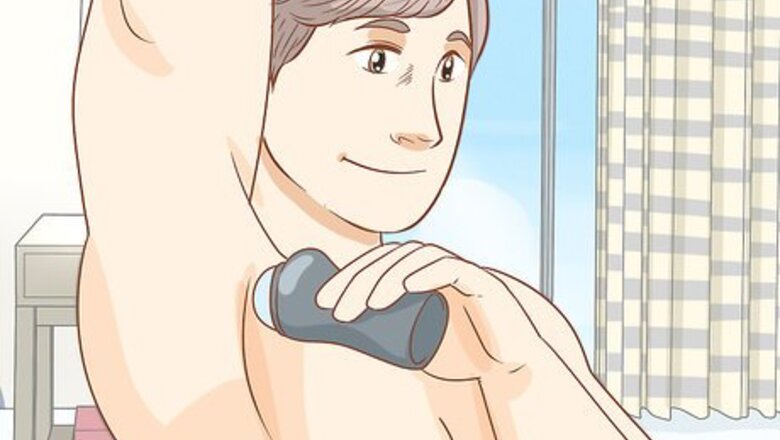
views
Dealing With Issues That Affect All Genders
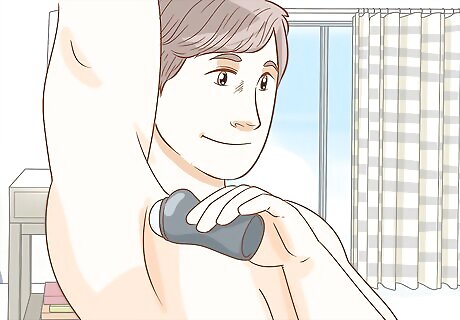
Deal with body odor. When you go through puberty, you will probably notice that you start to sweat more (especially under your arms) and have more body odor. This is completely normal, but it does mean that you need to be more conscientious about your personal hygiene. Remember to shower every day and wear clean clothes. Applying deodorant every morning will also help you smell fresh and clean. Some deodorants contain antiperspirants, which also prevent sweating. A regular deodorant without an antiperspirant will not prevent sweating, but will prevent odor. Your hair may become more oily as well, so you may have to wash it more often than you used to.
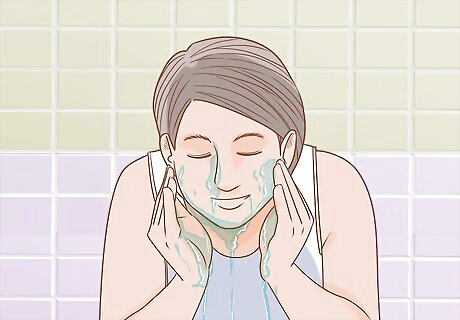
Treat acne. During puberty, your skin will start changing due to hormonal changes, and this may cause you to get acne. You may also notice that your skin is becoming dry or oily. To combat these issues, be sure to wash your face twice a day with a gentle cleanser. Applying an over-the-counter acne cream can help you deal with breakouts, and moisturizing can help you deal with dry skin. Acne medications that contain benzoyl peroxide, sulfur, resorcinol, or salicylic acid as active ingredients tend to be very effective. Everyone's skin is different, so try a few different products until you find one that works for you. Be aware that acne medications may dry your skin out, so you may need to apply a moisturizer as well. Always use an oil-free moisturizer on your face, especially if you have acne. Oily moisturizers can cause more breakouts. Moisturizers that contain sunscreen will help protect you from sun damage as well. Popping pimples and picking at your skin can make your acne problem worse, so avoid doing this. Try to avoid touching your face or letting your hair come in contact with your face, as this can transfer oil to your skin and cause breakouts. If you have serious acne that does not get better with over-the-counter treatments, consider seeing a dermatologist.
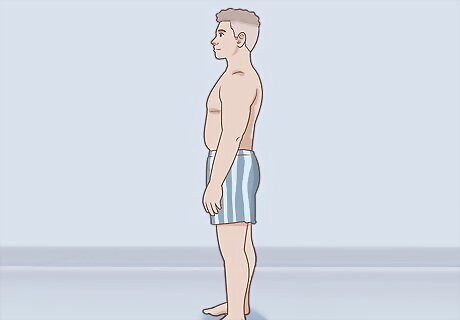
Expect growth. Most people have at least one growth spurt during puberty. You will probably grow several inches during this time, and you will probably gain some weight, too, as the shape of your body changes. If you feel a little awkward in your body during this time, know that you will grow out of this phase. Some people gain weight before they begin growing, and some start growing taller before they gain weight, but both are perfectly normal. It may help you feel more confident about your body if you wear clothes that fit you. Ask your parents/guardians if you can buy some new clothes (even if it's just a few things) if you notice that your old clothes don't fit that great anymore. Keep in mind that you may continue growing and changing for a while. You may also feel like your feet are awkwardly large at this stage in your life. This is because feet often grow before the rest of the body. Know that you will not feel clumsy for long and the rest of your body will catch up to your feet.
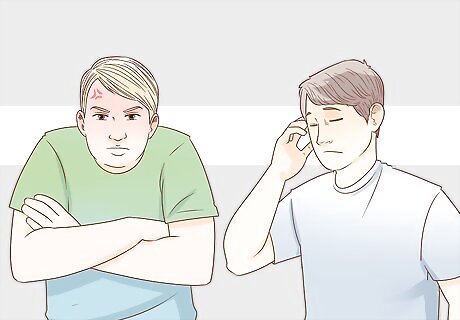
Cope with emotional changes. Puberty is caused by an influx of the hormones estrogen and testosterone. These hormones affect not only the way your body looks, but the way you feel. As a result, you may be more angry or emotional than you used to be. There's not much you can do about this, but try to recognize your emotional changes and avoid lashing out at others. You may also feel uncomfortable in your body during this time. Try to remember that all of these changes are normal. You may also feel unusually tired at times, so let yourself get some rest. If this becomes severe, be sure to mention it to your doctor. It usually helps to talk to someone about your emotions, whether it is a trusted friend or an adult. You may need a little support during this time in your life, so don't be afraid to seek it out. One way to improve your self-esteem during this difficult stage in life is to commit yourself to doing something you love. Whether you are talented at singing, painting, or playing baseball, these activities will give you a great boost of confidence. If these emotions are interfering with your everyday life or causing you to feel very distressed, seek professional counseling. Talking to a professional can help you learn how to deal with these emotions in a healthier way. Exercising can help you cope with the anxiety that you may experience as a result of all of the changes that are happening during puberty. Exercising releases chemicals in your brain that are known to improve your mood, so find some kind of physical activity that you enjoy, whether it's swimming, dancing, or playing a team sport.
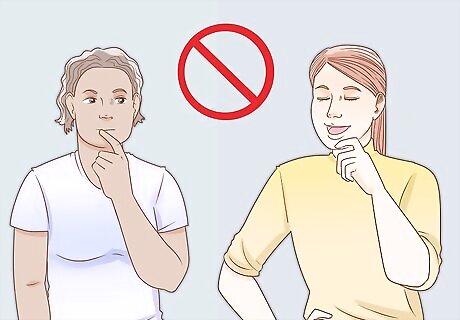
Avoid comparing yourself to others. Puberty happens to everyone, but not necessarily at the exact same time. If you start experiencing puberty before all of your friends, or if you feel like you are behind all of your friends, this is nothing to worry about! In a few years, everyone will have caught up to each other. Puberty usually starts between the ages of 8 and 13 for females. Puberty usually starts between the ages of 9 and 15 for males.
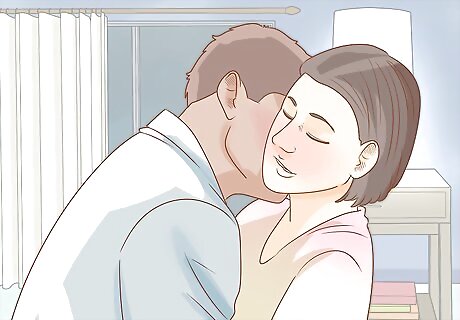
Expect to feel sexual desire. At some point during puberty, you will probably begin to feel sexual desire. Just because you feel desire does not mean that you are emotionally ready for sex. It is always a good idea to talk to a trusted adult about how to know when you are ready for sex and about practicing safe sex. If you do decide to have sex, understand how important it is to protect yourself from pregnancy and from Sexually Transmitted Diseases (STDs). The best way to protect yourself is by always using a condom, although this is not 100% effective either. Oral sex can cause the transmission of STDs as well, so it is still important to practice safe sex. Use a dental dam, plastic wrap, or a condom that is cut open into a square when performing oral sex to someone with a vulva (area outside the vagina) or anus. Use a condom when performing oral sex on a penis. You can find condoms and items like plastic wrap at grocery stores or pharmacies; you may need to go to a clinic like Planned Parenthood or try a dental supply store to find a dental dam. Never let anyone pressure you into having sex if you are not ready. This is a personal decision that no one can make for you.
Be prepared to start questioning your sexual/romantic orientation and/or gender identity. Relationships tend to come and go during adolescence, and partners frequently enter the picture. The thrill of flirting and meeting new people can be exciting, but it can also be quite stressful, especially if you're unsure of who you're attracted to. You may be confused about your gender, or you may be transgender, nonbinary, or genderqueer, and have dysphoria, or pack/bind, etc. You may already know who you are, or you may still be discovering yourself. In any case, this is normal and acceptable. You might consider educating yourself on LGBTQ terminology. It's also crucial to understand the distinction between gender identity and sexual orientation, as well as to recognize that everyone has a sexual orientation that is distinct from their gender identity. Remember that everyone's life experience is unique. If you have feelings of attraction for someone, accept those feelings for what they are. You are not required to come out to anyone if you do not wish to. However, if you trust them, it's a good idea to talk to someone (a friend, relative, or sibling) about how you're feeling.
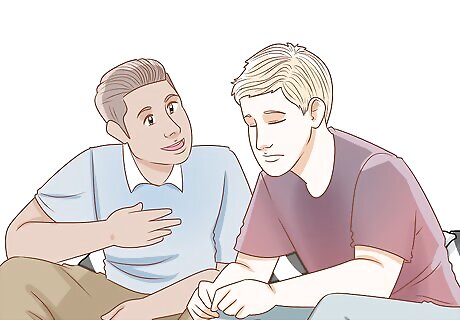
Find someone to talk to. If you are feeling uncomfortable about the changes that are happening to your body, it may help to talk to someone who has gone through these changes before. Find a trusted adult to talk to, whether it is a parent, an older sibling, or your doctor. You can talk to your friends about these issues as well, but remember that they are just as confused as you are, so don't rely on them for advice. If you have been seeing a pediatrician who is not the same gender or sex as you and you do not feel comfortable talking to them about puberty, ask your parents/guardian if you can see a new doctor.
Dealing With Female-Specific Issues
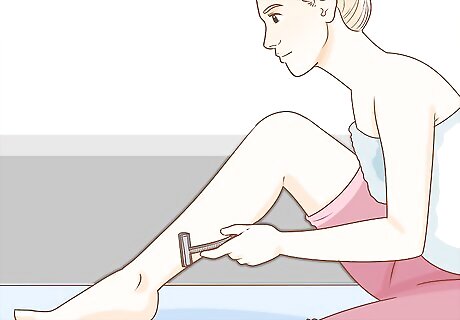
Learn to remove body hair. Females begin growing hair on their arms, legs, and around their pubic areas during puberty. You don't have to shave if you don't want to, but many people choose to begin shaving shortly after body hair begins to appear. It is always a good idea to talk to your another trusted adult (who shaves) about shaving before you try it for the first time. A manual razor is the easiest way to shave. There are many different types available, but all of them should be used with some kind of lubricant, such as shaving gel or soap. You will need to be careful while shaving to avoid nicking your skin. You can also use an electric razor if you prefer. Waxing your legs, underarms, and bikini area is also an option. This may be painful, but it will last for longer than shaving. There are also chemicals that you can buy at drug stores to remove hair at home without the use of a razor.
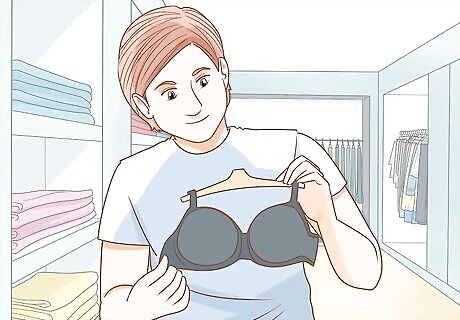
Get a bra. When your breasts start to grow, you may find that you want to start wearing a bra. Ask your parent or another trusted adult to take you shopping for one. You may need a different kind of bra that offers more support for sports. It's very important that your bra fits correctly. If you need help with this, most department stores have bra-fitting experts on staff, so just ask. Don't be concerned if one breast starts growing faster than the other. They will eventually even out, although most people's breasts are not exactly identical to one another.
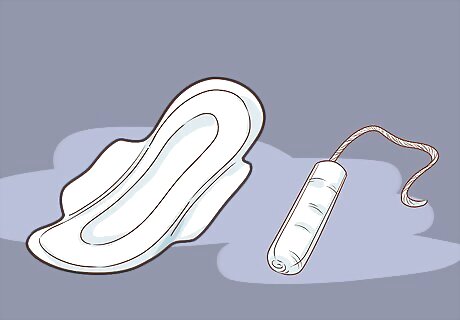
Be prepared for your first period. Getting your first period can be very scary, but it's a lot easier if you are ready for it. When you have your period, you will need to use either a pad, which sticks to the inside of your underwear, or a tampon, which you insert into your vagina. You will find instructions for how to use these on the packaging, but it helps to ask an older adult who menstruates, like your parent, for advice. It's a good idea to keep a clean pair of underwear and a sanitary napkin in your backpack in case you get your first period at school. Most people with vaginas get their first periods around the age of 12, but it is perfectly normal for it to happen anywhere between the ages of 8 and 16. Getting your first period means that you will be able to have a baby. If your egg does not meet up with sperm from someone with a penis, then you get your period each month. About one cup of blood will come out of your vagina over the course of about 3-7 days. Don't be alarmed if your first few periods are a brown color instead of red. This is perfectly normal. It is also normal for your periods to be irregular at first, but they will become more regular as you get older. Be sure to change your pad or tampon regularly (at least once every four hours). Tampons can cause a serious medical condition called Toxic Shock Syndrome (TSS) if they are not changed within 8 hours. In addition to your period, you may also notice that you occasionally have a clear or white discharge in your underwear. This can happen before your first period and will continue after you have your period as well. Vaginal discharge is caused by changing hormones in your body, and actually helps keep the vagina healthy.
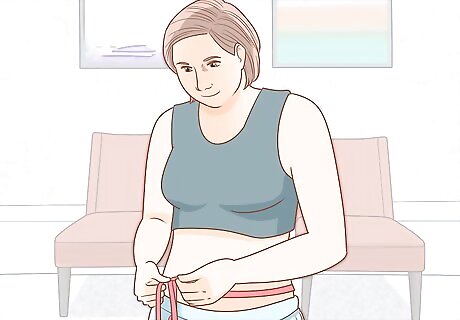
Accept weight gain. In addition to breast development, females will experience other physical changes to the shape of their bodies. It is normal and healthy for females to gain some weight and become curvier during puberty, so do not try to prevent it. Dieting during puberty to prevent normal weight gain is very unhealthy! Even though you may feel uncomfortable with the changes that are happening to your body, it is important to let them happen.
Dealing With Male-Specific Issues
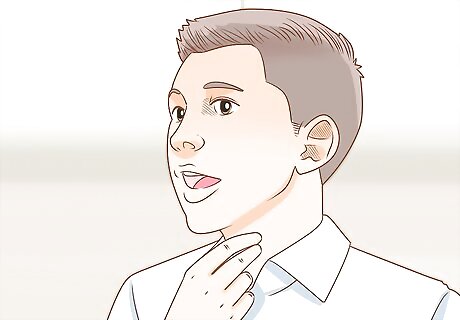
Cope with a changing voice. As males go through puberty, their voices become deeper. This occurs because the larynx and the vocal cords are growing rapidly. Unfortunately, as your body adapts to these changes, you may find that your voice cracks or squeaks unexpectedly. There's nothing you can do to prevent this, but it may be comforting to know that it usually only lasts for a few months. For most males, this happens between the ages of 11 and 14.
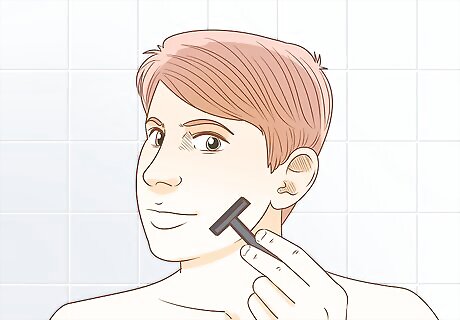
Start shaving. At some point during puberty, you will notice that you start to grow hair on your chin and above your upper lip. When this hair becomes noticeable, you will probably want to start shaving. It's a good idea to talk to your dad or another trusted adult about shaving before you try it for the first time. An electric razor with a flexible head is convenient and effective, although it may not offer the closest shave. You can also shave with a manual razor, but you will need to be more careful not to cut yourself. Always use a shaving cream or gel with this type of razor to prevent irritation. You will also see hair begin to appear under your arms and around your groin. The hair on your arms, legs, and other areas of your body will become thicker and heavier. You can leave this hair alone if you want, or, if your body hair bothers you, you can choose to wax or shave it.
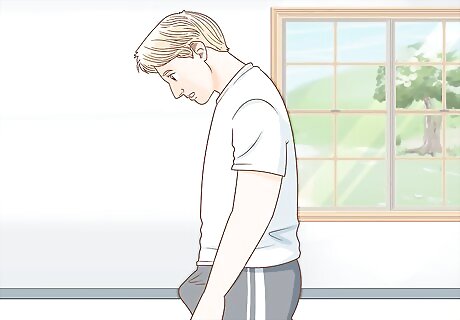
Expect erections. As you go through puberty, you will typically begin to experience erections, which is when your penis temporarily becomes longer and harder because it is filled with blood. These can happen unexpectedly, so don't be too alarmed. Erections can happen at any time, whether you are sexually aroused or not. Try not to be too embarrassed if you get an erection in front of other people. They are not nearly as likely to notice it as you may think. If you want to get rid of an erection, stop thinking about it. Instead, try focusing your attention on a boring and repetitive task, like saying the alphabet backward.
Expect genital growth. You will also notice that your penis and testicles are growing during puberty. Try not to worry about your size or compare yourself to others. Also, don't be worried if one testicle seems to be growing faster than the other, as they will even out eventually.
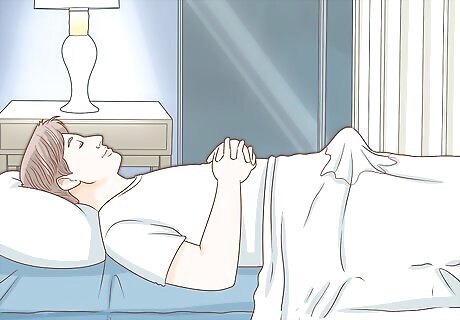
Realize ejaculations are normal. In addition to erections, you will also start to experience ejaculations. This is when an erection suddenly ends and you release semen from your penis. Like erections, these can happen unexpectedly, so don't be too alarmed. This is perfectly normal, and means you are changing from a boy to a man. Ejaculations can happen at any time that you have an erection, whether you are sexually aroused or not. Some people with penises experience nocturnal emissions, more commonly known as "wet dreams." This is when you get an erection while you are sleeping and ejaculate before waking up. Even though it doesn't happen to all people, it is a perfectly normal stage of development, and it will stop happening as you get older.
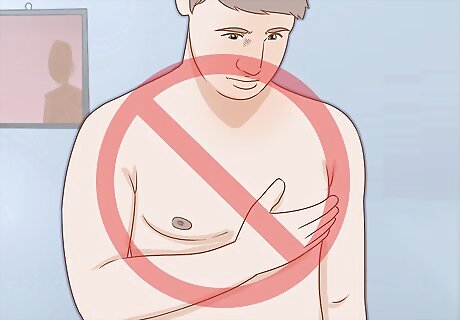
Don't fret over minor breast growth. As teens go through puberty and their bodies start to fill out, they often experience a small amount of breast growth. This is perfectly normal and does not mean that there is anything wrong with your hormones. As your body continues to grow and change, this will go away.















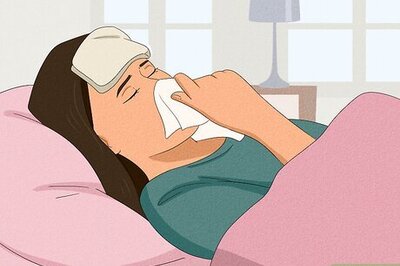


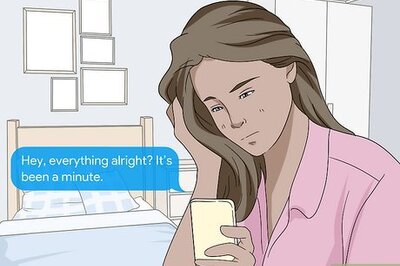

Comments
0 comment